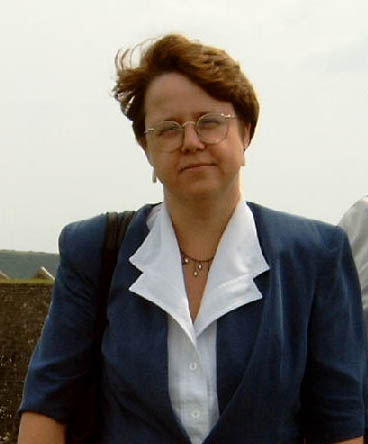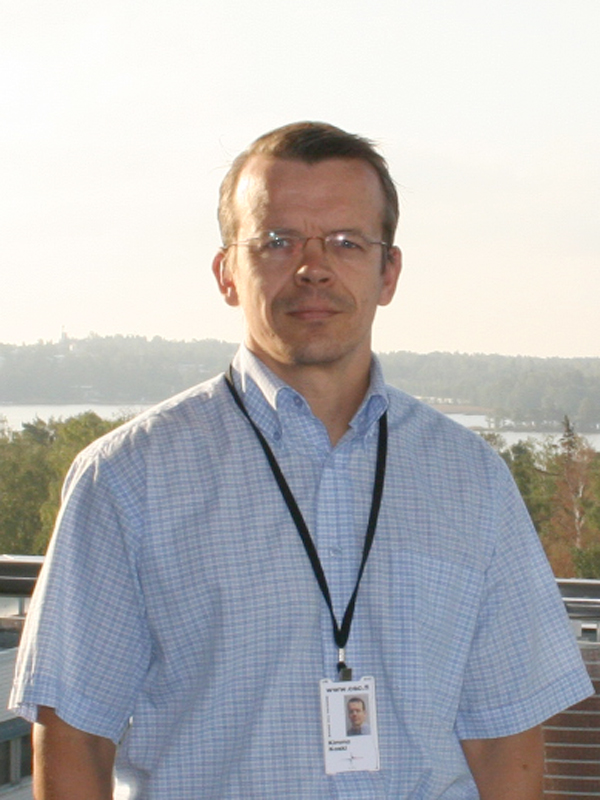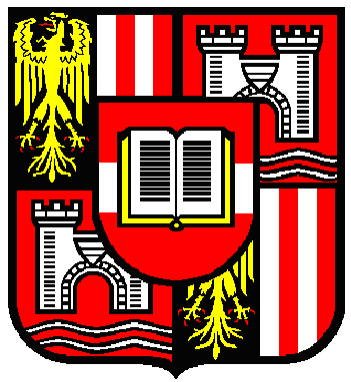
Invited Speakers

Arndt Bode
Vice President of the Technical University Munich, Germany. Chair of of the Department for Computer Technics and Computer Organization.
High Performance Computing in the Multi-core Area
Multi-core technologies, application specific accelerators and fault tolerance requirements are defining a new hardware basis for high performance computing systems. Multi-core will make evolve parallelism from a niche product in HPC to the standard programming model and, therefore, trigger new developments in languages, environments and tools. Accelerators and dynamic system behaviour from fault tolerance will make virtualization techniques necessary to support programmability. Energy efficiency as a new optimization target for HPCN systems will force future systems to bring all of these techniques together.Born 1948, studies in informatics (Dipl. Inform. and Dr. rer. nat.) at the University of Karlsruhe/Germany, Dr.-Ing. habil. at the University of Erlangen-Nürnberg/Germany, topics: eLearning and computer architecture. Since 1987 Professor at TU München, Vice President and CIO of TU München. Author of more than 200 publications on eLearning, computer architecture, distributed and parallel computing and applications.

Ladislav Hluchý
Director of the Institute of Informatics, Slovak Academy of Sciences Head of the Department of Parallel and Distributed Computing.
Knowledge based Virtual Organizations for Environmental Risk Management
The topic of natural disaster management - prediction, prevention, or minimization of their impact is an important topic for scientific research. The advances in semantic grid, knowledge management and in service oriented architectures allowed to create effective and user- friendly application oriented virtual organizations. The presentation will be focused on the recent achievements in projects MEDIGRID, K-WfGrid and DEGREE from the knowledge based construction of VOs point of view.Ladislav Hluchý is the director of the Institute of Informatics of the Slovak Academy of Sciences and also the head of the Department of Parallel and Distributed Computing at the Institute. He received M.Sc. and Ph.D. degrees, both in computer science. He is R&D Project Manager, Work-package leader in a number of 4FP, 5FP and 6FP projects, as well as in Slovak R&D projects (VEGA, APVT, SPVV). He is a member of IEEE, the editor-in-chief of the journal Computing and Informatics. He is also (co-)author of scientific books and numerous scientific papers, contributions and invited lectures at international scientific conferences and workshops. Current research interests: Grid computing, multi-agent systems, knowledge management, semantic web, semantic grid, large applications requiring high performance processing, Internet/Intranet computing.

Dana Petcu
Professor at Computer Science Department of Western University of Timisoara; Director of Institute e-Austria Timisoara.
Distributed Symbolic Computations
Symbolic and algebraic computations are one of fastest growing areas of scientific computing, and focus of this presentation. An overview of the state-of-the-art in symbolic and algebraic computations on distributed architectures, in partcular Web and Grid architectures, is discussed. The background information, including typical application areas, will be followed by a list of past and on-going projects involving symbolic computations on distributed computing environments. To illustrate in more details issues involved in porting computer algebra systems (CAS) to the Grid, some case studies involving popular CAS environments will be presented.Dana Petcu is professor at Western University of Timisoara and director of a Romanian-Austrian research institute in computer science, Institute e-Austria Timisoara, Romania. She received a M.Sc. degree in Informatics from Western University of Timisoara in 1988 and a Ph.D. degree in Numerical Analysis from the same university in 1994, after a Ph.D. stage in Ruprecht Karls University of Heidelberg. Dana Petcu specializes in parallel computing, numerical algorithms in differential equations, and mathematical software. She has published over 100 technical papers in the those areas. Her current research interest is focusing on Grid computing.

Kimmo Koski
Managing Director, CSC, the Finnish IT Center for Science.
Building an HPC Ecosystem in Europe
During 2006 there has been intense work in Europe in order to increase European competitiveness in high-end computing and grid collaboration. Various new activities have been started in addition to the existing European grid projects, such as EGEE and DEISA. High-Performance Computing in Europe Taskforce (HET) has drafted a strategy for European HPC Ecosystem with a focus in enabling European centers with a computing capability beyond petaflop. Collaboration of the various National Grid Initiatives, European Grid Initiative (EGI), has been planned with a focus on transparent interoperability between national cluster environments. European Strategy Forum for Research Infrastructures (ESFRI) has published a roadmap with 35 major new experiments, all requiring data management capabilities and many of them in addition high end computing. Integration of activities and tight collaboration between the various European initiatives is essential in order to manage the growing complexity.
The talk discusses the status of European HPC and grid activities. A case
example about positioning a medium size country, Finland, to this context is
given. Future plans for infrastructure development in Finland and Europe are
presented, with a focus towards efficient collaboration in a European HPC
ecosystem.
Kimmo Koski started in his current position as Managing Director of the Finnish IT center for science, CSC, in August 2004. Prior to his present position, Koski spent 4.5 years at the Nokia Research Center and Nokia Technology Platform, where he was responsible for various management tasks for both the Center's and the Platform's global IT services. Earlier work experience includes 10 years at CSC in various positions, most of the time as the manager of the operational computing environment, and a one-year visiting period in CERN in Switzerland. Koski received his doctorate from Helsinki University of Technology in January 1996. His dissertation was on Metacomputing Technology. During the recent years Koski has been involved in European collaboration in high-performance computing (HPC) and grid activities. In 2006 he has chaired a few international groups, HPC in Europe Taskforce and Nordic Data Grid Facility, and participated in Norwegian e-infrastructure advisory group and Nordic e-Science strategy group. Koski was also involved in composing the Finnish grid strategy during 2005-2006. Kimmo Koski was born in July 1964 in Hyvinkää, Finland. He is married and has three small children. Hobbies include (in addition to the busy family life) various kinds of sports, cooking and foreign languages.





